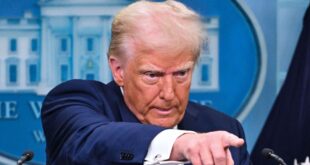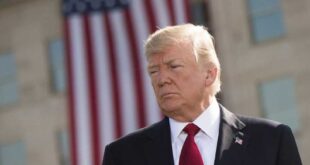Five months after the 9/11 attacks, US President George W. Bush asserted his acrid perception of the enemies of the United States by introducing the “Axis of Evil” forged by the tripartite entity of Iran, Iraq, and North Korea. Ironically, none of the criminals involved in the terrorist attacks trailed back to either of these three nationalities. However, that anecdotal coinage was enough to serve as a preamble for the ultimate invasion of Iraq in 2003. Now two decades later, that phrase was conveniently reforged by a Russian parliamentarian, touting the “Axis of Good” shaped by Russia via converging Iran and China on the anti-American rhetoric. While calling it ‘good’ is a long stretch given the backdrop of the ravaging war waged by Putin, the underlying tenets are not as complex as shrugged off by the western coalition. And while the Cold War 2.0 is still a distant possibility, the birth of this new world order is visible – though not entirely material.
Putin’s first international visit, beyond the borders of the née Soviet Union, was to Iran last week. The official rationale was a tripartite discourse on the Syrian policy with Iran and Turkey. But no one could be that naive to accept the statement as is. The trilateral meeting was a statement of power; a representation of options – for all three countries involved.
Turkey is portraying its political artistry in the region. It is courting the Western alliance through its veto power over the NATO membership of Finland and Sweden. Simultaneously, Erdoğan is flirting with Russian favors by mediating negotiations with Ukraine and convening on crucial regional issues (like Syria) with Putin despite his brutal western alienation. While supplying arms to the Ukrainian front, Turkey has also refused to comply with Western sanctions against Russia. Consequently, these dichotomous policies have rapidly positioned Erdoğan as a strategic champion, indispensable to the United States and Russia. And admittedly, this strategic gameplan works wonders and could yield another electoral win for Erdoğan in the 2023 General Elections – despite his disastrous mismanagement of the Turkish economy.
It is obvious why Putin wants to highlight his political brinkmanship by rekindling a unique alliance with Iran. It is a pronouncement that the Kremlin is fully prepared for a reshuffle in power dynamics of the region – spurred by the invasion of Ukraine but catalyzed by the eastward expansion of NATO. Putin’s renewed affection for Iran could also be construed as a response to Biden’s dismal visit to the Middle East and his failed attempt to woo the Saudi Kingdom. However, Iran is a staunch enemy of Israel – a sentiment not shared by Russia. And thus, the extent to this peculiar alliance has inherent limits. Nonetheless, Israel is not as pivotal to the long-term imperialistic goals of Putin as Iran – especially when the colluding factor is the shared hatred for American supremacy.
For Iran, the expectations are easier to unravel. The nuclear deal is still in limbo as the hardline leadership of Ebrahim Raisi refuses to mediate leverage to the beleaguered US Democratic Party. Recently, referring to the Western parties in the nuclear accord, Iran’s Foreign Ministry spokesman Nasser Kanani reiterated that the Islamic Republic will “not sacrifice the country’s fundamental interests with a rushed process.” The Iranian purview has legibly hardened after the ill-timed discourse between Biden and Yair Lapid – the Prime Minister of Israel. Biden’s frivolous remarks regarding Iran did not help the western view of containment. And prompting action to “stop Iran from getting nuclear weapons by any means, including military, as a last resort,” and attempting to muster a Gulf alliance against Iran – all actions were unneeded given the backdrop of an essential deal hanging by a loose thread.
Contrary to Biden’s hapless efforts, the Gulf states – including the UAE and Saudi Arabia – are mulling to rewire their frayed diplomatic relations with Iran. In a recent interview, Anwar Gangash – the diplomatic adviser to President Sheikh Mohammed bin Zayed al-Nahyan – stated that “the conversation is ongoing,” and the UAE is “in the process of sending an ambassador to Tehran. All these areas of rebuilding bridges are ongoing.”Even the Crown Prince of Saudi Arabia Muhammad Bin Salman (MBS) voiced his aspirations in an interview with The Atlantic earlier in March, stating: “[Iran and Saudi Arabia] are neighbors. Neighbors forever. We cannot get rid of them, and they can’t get rid of us. So it’s better for both of us to work it out and to look for ways in which we can coexist.” The trajectory of the Middle East is seemingly tilting toward a regional concord – beyond the lines of sectarian and ideological differences consistently exploited by successive American regimes in the past. And thus, Iran’s collusion with Russia (and the Gulf states) could lead the Islamic Republic away from its hardcore resentment for Israel – at least shortly. But it would also integrate Iran into a parallel bloc unscathed by American restrictions – whether it panders to human rights watch, economic sanctions, or international isolation.
In a high-profile meeting with Putin, Iran’s Supreme Leader Ayatollah Ali Khamenei unequivocally voiced his support for the Russian invasion, stating: “War is a violent and difficult issue, and the Islamic Republic is in no way happy that civilians get caught up in it, but concerning Ukraine, had you not taken the initiative, the other side [NATO] would have taken the initiative and caused the war.” Such an explicit assertion is not dependent on any detailed analysis or interpretation. Iran is unambiguously throwing its weight behind Putin to advance the Russian claims against the US. And the excuse of a palpable competition in the market for sanctioned oil is simply wishful thinking – stemming from western think tanks. Despite sanctions, Russia has already surpassed its budgetary revenue estimates from fossil fuel imports. And according to Elvira Nabiullina – the Governor of the Russian Central Bank – Russia would categorically refuse to sell oil to countries attempting to place a price cap on Russian energy supplies. The gas supplies through the Nord Stream 1 (NS1) pipeline have already squeezed down to 20% of capacity. Thus, demand would not be an issue when Europe freezes; Biden falls out of favor in the forthcoming winter. And while a recession could undercut the abnormal commodities and fuel prices inadvertently financing Russia’s war in Ukraine, it would also debilitate Europe’s ability to wean off Russian energy – especially Germany (the plinth of the European economy and a manufacturing hub). Hence, Iran – a member of the OPEC+ alliance alongside Russia – would gain significant leverage in the broader market when the Western defiance loses its luster in the face of domestic economic misery.
China, contrary to Iran, has been particularly distant from the fiasco in Europe, tip-toeing the fine line between condoning/censuring the Russian invasion of Ukraine. However, by no means can we count China as neutral. Even India, a bellwether partner of the US, is not a neutral player as it continues to profiteer off discounted Russian oil despite Western reservations. China has remained critical of the US response against Russia, terming the sanctions as illegal and immoral. China continues to fill Russian coffers by procuring sanctioned oil despite its ongoing economic slowdown. And China refuses to denounce the Russian aggression in spite of insistence from European allies. While I admit it is idealistic to assume that Beijing would outright support the anti-western rhetoric reflected by Moscow or Tehran, it would supposedly back any alliance that shapes parallel supremacy in the transatlantic order. Hypothetically, it would not only allow Beijing to set a cornerstone in the Middle Eastern and European politics, but it would also ensure diversified energy supplies for its industries and investment avenues in the region. Ultimately, I believe that China, though not yet open to complete defiance of the western world order, would still support a fledging rivalry on the global diplomatic canvas – reinforced by the regional sway of Iran and Russia.
Over the last few decades, the United States has tirelessly pursued a policy of pressure and surrender. In Vietnam, Afghanistan, Iraq, or Syria – you name it! The US has vaguely defined a diplomatic code that suits the pseudo-liberal definition of its goals and means in any region. And it has rallied neighboring nations in various parts of the globe (based on this subjective code) against an isolated regime to etch dominance in any region. Biden is not trying to deviate from this traditional course of American foreign policy. Albeit, he is relatively less bombastic about it than his Republican predecessors. Yet the world has evolved beyond the unipolar political skeleton observed in the post-Cold War era. Today the world is intricately globalized and perilously interdependent. The US cannot undercut the economic rise of China without inflicting severe damage to its own productivity. European economies – like Germany and Hungary – cannot shed their dependence on Russian energy without facing a significant economic slowdown and a painful recession. And the Middle East cannot stabilize by normalizing relations with Israel while simultaneously isolating a belligerent Iran in its periphery. Ultimately, I believe the constituents of this new world order are indispensable – even under the hood of harmony apparently envisioned by the Western coalition. And hence, the potency (or villainy) of this synergized axis would largely depend on the conciliatory (or retaliatory) role played by the United States in this recalibrated global political structure.
 Geostrategic Media Political Commentary, Analysis, Security, Defense
Geostrategic Media Political Commentary, Analysis, Security, Defense





